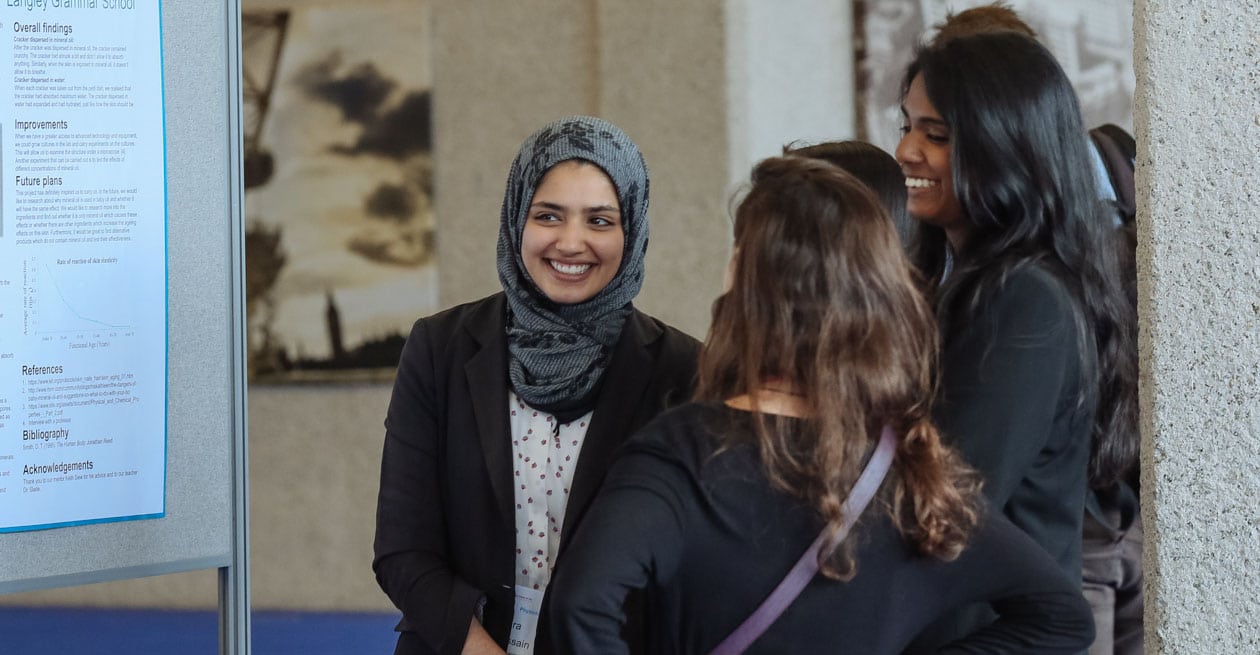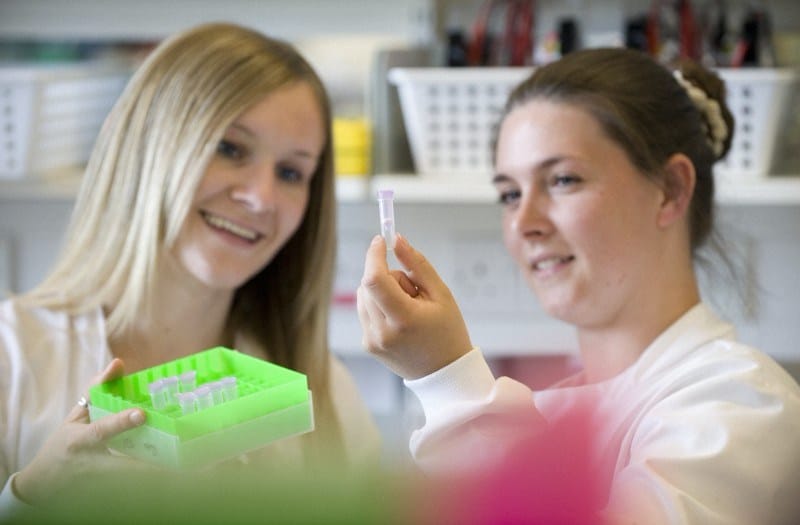A longer version of this article originally appeared in Physiology News.
‘What matters most is how well you walk through the fire’ – Charles Bukowski
The career path of scientists is oft the result of happenstance; a chance meeting at a conference, a quirk in a dataset, a change in personal circumstance. There’s no one size fits all for scientists’ careers. We sought to highlight this with several case studies to encourage you on your way.
The beauty of science is it takes you across borders
by Rebecca Dumbell, Postdoctoral Training Fellow, MRC Harwell Institute, UK
I completed my PhD from the Rowett Institute of Nutrition and Health, University of Aberdeen in 2014. The Rowett had merged with the University a few years before I joined, and combined with the rural location at the time, this meant that it still had the feel of a research institute. Towards the end of my PhD I heard about a postdoc position coming up at the University of Lübeck in Germany through word of mouth. In a bit of a whirlwind I flew out to Germany for my interview the day after submitting my thesis, and I started the job a few months later.
Getting set up in my new job and new country was a challenge. I quickly learned that I needed a lot of documents, all from different offices located very far from each other, and they all had to be collected in a particular order. My EU passport smoothed the process and made my experience much easier than what I witnessed my non-EU colleagues go through. Within 1 week I had everything I needed, including a place to live, a bank account, health insurance and a pension plan.

I spent almost 2 years as a postdoc in Lübeck and I really loved living in Germany. Half of my colleagues were German and the rest came from all over the world, all speaking English in the lab. This was a lot of fun and we set up things like ‘international cooking club’ and, my personal favourite, whisky club. I found that as the only native English speaker I was the go-to proofreader; this certainly improved my grammar if not the work I was checking!
I now work at the MRC Harwell Institute in Oxfordshire as a Postdoctoral Training Fellow, and again find myself in a research institute in a rural setting. This comes with its own advantages and challenges. I have to go out of my way to build on my undergraduate teaching experience. But, once identified, these issues are overcome by connecting with people at the nearby University of Oxford, and with my wider professional network.
For me the chance to work abroad is a big draw for a scientific career; it built my confidence and expanded my professional network as well as providing a great experience. Coming back to the UK was right for me at the time but I’d not rule out going abroad again.

‘Establishing a life outside of work has been vital in putting my work here into perspective, and makes those inevitable scientific frustrations far easier to deal with.’ – Chris Shannon, University of Texas Health Science Centre, USA
The quest for the Holy Grail of lectureship
by Gisela Helfer, Lecturer, University of Bradford, UK
After I graduated in Zoology at the University of Salzburg, Austria, I worked at the Max Planck Institute for Ornithology in Andechs, Germany. Here I found my love for science in general and chronobiology in particular. From Andechs, I started my northwards journey, first to do a PhD at the University of Birmingham and then to postdoc at the Rowett Institute in Aberdeen. Throughout my journey, I was very fortunate to meet some amazing scientists, mentors as well as peers, and it was always my ambition to succeed in academia. Six years of postdocing, three moves and two children later, I finally found the Holy Grail in beautiful Yorkshire. In March 2016, I started my permanent lectureship at the University of Bradford.
Academia has one of the longest apprenticeships that I am aware of. Undergraduate studies, plus/minus masters studies, PhD studies and then several years of postdocing. For me, this totalled to 14 years of apprenticeship. Despite this long training, I was little prepared for the job of a lecturer. Yes, I had some teaching experience. I supervised students in the lab, I occasionally lectured to undergrads and I even worked a few months as a teaching fellow. In my CV I called this ‘extensive teaching experience’ – little did I know. Because in reality I spent all my days and often nights (the joys of circadian rhythms research) in the lab or in the animal house. And I loved every minute of it!

Now, I am rarely in the #Helferlab. The brand-new set of pipettes that I proudly bought from my first grant is now exclusively used by my students, while I spend my time rushing from place to place. I run to see undergrads or I run to one of my countless meetings.
I admit that I miss being a postdoc. I miss being in the lab from morning to evening, I miss having a supervisor who keeps me right (although my mentor at the Rowett is only a phone call away) and I miss the untroubled life of only being responsible for the next set of experiments. Of course, I do not miss the dreadful months before the contract comes to an end.
Despite all of this, I enjoy being a lecturer. While the holy grail is not as shiny and golden as I thought it would be, the journey was certainly worth it, and I would do it all over again. Next goal: professorship.
This article was compiled by Jo Edward Lewis. You can read more testimonies in the original article in our magazine, Physiology News.
